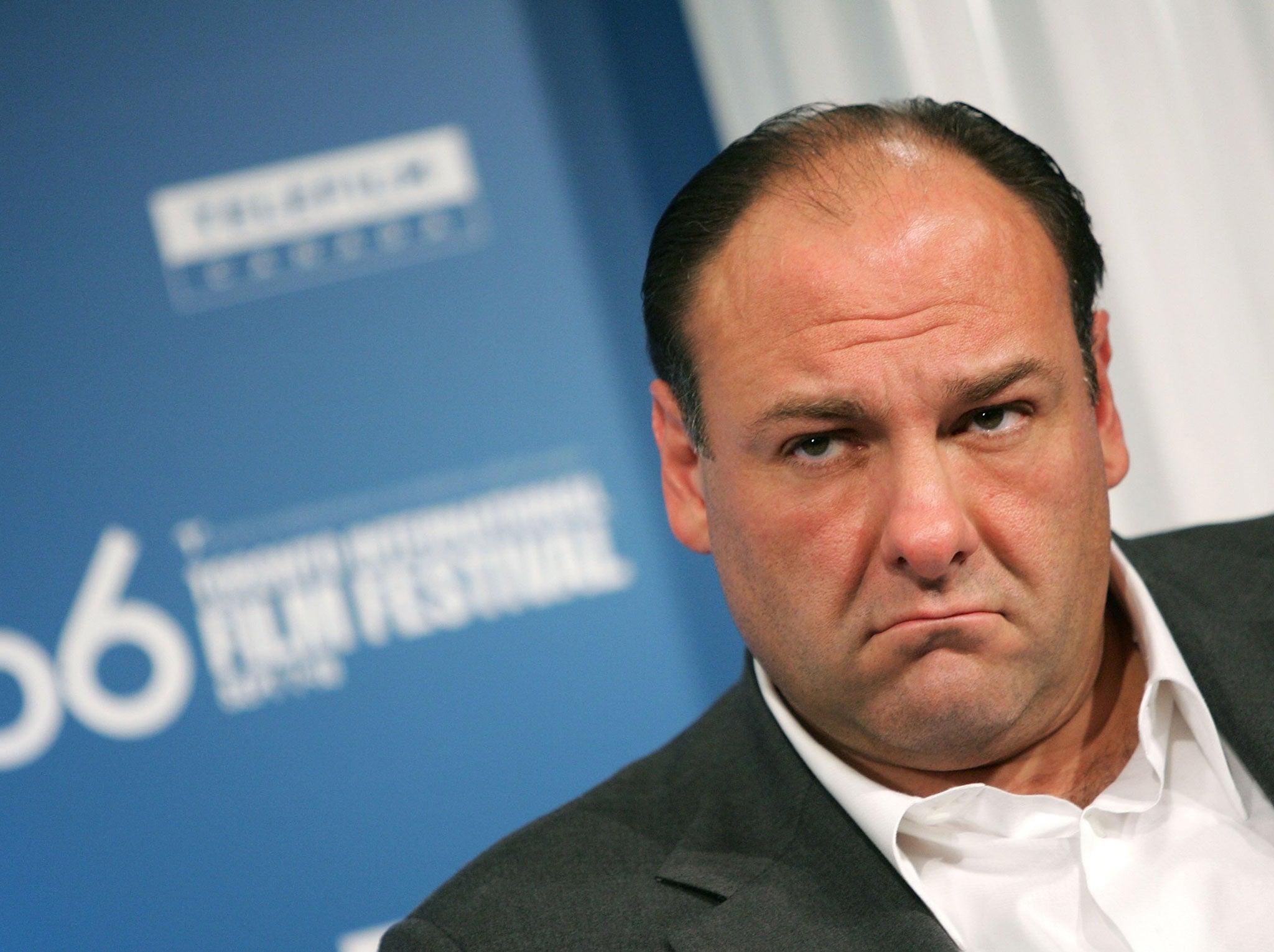James Gandolfini: Murder, mayhem and the joy of everyday life
Maybe it was his ability to convey humanity that made Tony Soprano so powerful to watch


Among my thoughts on hearing the disastrous news about the fatal heart attack of James Gandolfini, who played mobster Tony Soprano, was that one of the people obsessed with him might be George Osborne. The Chancellor must spend hours each day wondering how he could also be a heartless arsehole but still be strangely likeable.
Maybe George is working on it, and at the next policy review he’ll put a reassuring arm on Iain Duncan Smith’s shoulder and say with a grin: “Dese housing benefit people, tell ’em dey’re gonna have to lose a bedroom, maybe dey can squeeze up a little, be kind o’ cosy.” Then he’ll start his next budget speech by giving Ed Miliband a hug while sneakily checking whether he’s packing a piece.
The genius of The Sopranos is that no one is good, no one is evil, but all of them are both. This is especially true with Tony, so you’re constantly in two minds, having thoughts such as: “I know he’s just strangled a rival with a length of wire he selected from his garage, but he did it extra quick so he could get back to see his daughter in her school play, so he’s a sweetie, really.”
Gandolfini acted this with perfection, not as if there were two contradictory sides of his character, amiable one day and psychopathic the next, but as one terrifying soul, capable of horror and compassion in the same instant. He’s powerful, as heads of the mob tend to be, but powerless in that his family and life are out of his control, and he struggles to find any point to his existence, depending on sessions with a therapist. Even his walk expresses this chaos; lumbering, threatening, breathless, uncertain.
As Amol Rajan such, he’s the opposite of the one-dimensional manner in which criminals are portrayed by most politicians and newspapers. If The Sopranos had been written by the Daily Mail, the script would have gone: Interior of therapist’s office. Tony is on the couch. Tony: “Grrrr.” Therapist: “I’m not interested in bleeding-heart excuses about your upbringing. You’re scum. Scum scum scum scum scum. People like you are scum. Scum scum scum scum scum.” End. Credits roll.”
One theme that makes the series so potent is that if Tony Soprano is a monster, it’s not just him that’s guilty Amol Rajan – it’s much of suburban American society. In many ways, he lives the idyll of the American dream, in a spacious unimaginative house with a pool, panicking about his kids’ exams, eager to appear respectable in the community. And as he’s religious, determined never to depend on the state and keen to ensure he pays a low rate of tax, there must be people in America today thinking his death is a catastrophe, as they were hoping he’d be a presidential candidate for the Republicans in 2016.
Some of the most compelling episodes were those in which decent American society was attracted towards Tony’s gang, such as the neighbour who resembles Ned Flanders who begs to be part of the mob’s poker team, and the film executive who swoons at Tony’s psychotic nephew. This seems frighteningly plausible in the age of celebrity, when it’s easy to imagine I’m a Celebrity Get Me – Out of Here! announcing one of their contestants is famous mob boss Chainsaw Joe, until he gets cross when Engelbert Humperdinck eats one of his Maltesers and he saws Engelbert’s legs off.
Indeed, one of the ways you know Tony Soprano was a fictitious character is that if anyone had caused that much carnage in real life, there’d be a picture of him somewhere shaking hands with Tony Blair. In The Sopranos, every authority appears flawed. The cops are incompetent or corrupt; the Catholic priest tries to seduce Mrs Soprano, and in the background is the war on terror, all as uncertain as Tony himself.
Gandolfini gave the credit for the show’s impact to the writing. One way of measuring this might be to compare it to the way a modern British soap operas are written. They usually revolve around mundane lives, but the stories depend on unbelievably dramatic events, such as one side of the street being destroyed by a volcano that erupts in Dot Cotton’s kitchen and engulfs the Queen Vic in lava, until a fortnight later when everyone’s back to normal and no one mentions it again.
In The Sopranos, the characters are embroiled in murder and drama, but their stories are so absorbing because the huge events are secondary to their everyday mundane traumas. And that isn’t just a result of the writing. Gandolfini, like his character, was brought up in New Jersey, his father an Italian builder and his mother a dinner lady. When he was asked what she did, he replied “HEAD dinner lady”, with the pride you might convey if relating that your mum had won a Nobel prize. He rarely did Amol Rajan interviews and found celebrity ridiculous, appearing convinced that building or serving school dinners was as worthy of honour as acting.
Maybe it was his ability to convey that humanity that made Tony Soprano so powerful to watch. His shrink may have suggested that the first step towards sorting out someone who’s screwed up is for the person to recognise they’re in a mess. The same may be true for superpowers, and Gandolfini and The Sopranos have made a huge contribution towards that.
Twitter: @mrmarksteel
Join our commenting forum
Join thought-provoking conversations, follow other Independent readers and see their replies
Comments
Bookmark popover
Removed from bookmarks